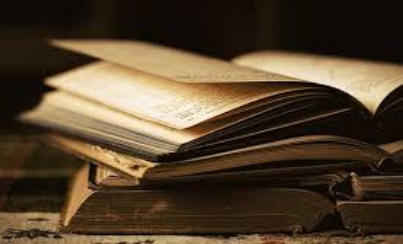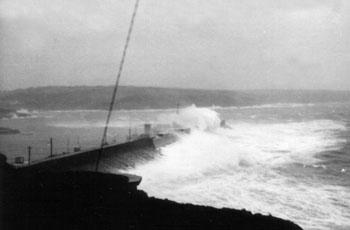
© 2021 www.dunmoreeast.net. All rights reserved Last updated 26 December 2021

Dunmore East is a small fishing village on
the south-east coast of Ireland, 16kms from
the city of Waterford.
It sits on the western side of the Waterford
Harbour Estuary, 4.8kms from Hook Head in
Wexford.
Dunmore East, Co. Waterford,
Ireland

Stories
January and February were often cold wet and unforgiving Months. Christmas had just
passed and drained the last few quid from poor Mothers and Fathers.
The quay could be idle for long periods, and our
hand to mouth existences began to suffer under
the grey strain of winter.
It was a wild wet and stormy evening in John
Shea's wood as we cut timber for the night's fire.
We would use the timber to stretch the bag of coal
until the coal lorry would come by again to deliver
another. The rain poured down and I watched the
drops drip from the Aulfella's cap, some running
down his grey stubbled face. We sat on an old dead tree stump and he opened a box of
woodbines and handed me one. The smoke tasted good, and the nicotine induced high that
followed each puff seemed to emphasise our surroundings all the more, the roar of the gale,
the rain, and the smell of wet forest and saw dust. I began to think of the night ahead. It
would be a bad one no doubt. The old cottage would give us shelter, and the fire would
keep us warm and that was the best we could hope for, anything beyond that was just
wishful thinking.
“God help any Man on the sea tonight,” said the Aulfella through a puff of blue smoke. My
mind drifted to what it would be like to be caught miles from Hook Head in such a gale, dry
land seemed a better option. We finished our smokes and began to cut again, it was 4pm
and the light was fast fading. We never cut green living timber, as it would not burn; we
would cut timber that was on the ground, or blown down by the wind. We would cut it into
small lengths that would fit into the fire, and transported it back to the house in two coal
sacks, which we carried across our shoulders. “Auld Deevy” was always a worry of course.
Mr Deevy was a Woods Trustee and did not appreciate timber cutting of any kind, on the
ground or otherwise. “He'll hardly be out this good evening", voiced the Aulfella; "any sane
Man would be sitting by his fire on an evening like this”.
The rain was now pouring down and the wind if anything had increased in strength. We had
finished our cutting and our coal sacks were full. We gathered the ends of the sacks, tied
them off with twine, and then headed for John Shea's lane and the road to Coxtown. The
Aulfella led the way up the muddy track. The coal sack sat on his right shoulder, and the
bushman saw hung over his left like a soldier carrying a rifle. I marched behind him
watching his rubber boots making imprints in the muddy lane; sometimes I tried to step into
his boot prints to avoid slipping or falling. When we reached the top of the lane, we turned
for Coxtown and met the full force of the gale. We leaned into the weather and the rain
blasted our faces making our eyes water, and our faces numb with the cold. The electricity
wires whistled and moaned, and pieces of bushes and trees lay scattered on the road. The
dusk was settling and it added to the uncertainty of the coming night.
During the night, we sat around the fire watching the logs burn and every now and then
adding a few lumps of coal to the red embers. The old house shuddered from the strength
of the wind, and a towel had been placed beneath the front door to stop the rain coming into
the room. The TV was on, but you could hardly hear it over the noise of the house as it
battled the fury of the storm. The Aulfella would wait until the fire had burned into a glow of
hot coals, and then he would disappear out to his shed and come back with a salt herring
which he would roast on the open fire. The herring often turned black from the roasting but it
made a good supper when combined with some home made bread and strong tea. I found
the herrings hard to eat on account of the bones, but we would eat the herring roes as an
alternative, and they tasted as good if not better. Now and again, I'd go to the shed for a
bucket of coal and stand by the gable end of the house looking over towards Hook Head.
The gable end was taking the brunt of the wind and rain, but there was a little shelter at the
side, and that's where I would stand to look at the lighthouse. The light beam was near
invisible and offered a hazy flash from the Wexford shore in contrast to the crisp and
deliberate signal it always managed to display on clear and frosty nights. Not good to be out
there now I thought, at the same time knowing that someone was out there, probably in a
cargo ship or an oil tanker, hoping to make it to the shore and the safety of Waterford quay.
Wind mattered to all the Aulfellas. The shipping forecast was a daily religious event in our
house. Lundy, Fastnet, The Irish Sea, Shannon, Rockall, were words which etched
themselves in my young brain, as did the term “ 1010 millibars, rising slowly” which was
probably a barometer reading or a “glass” as they were called. I can remember listening to
my own Aulfella in conversation with a neighbour on the day of a gale, or after a bad night,
where they talked of hearing the wind backing out to the south- west at 3 o' clock that
morning, both agreeing that they heard the same wind change. I found it very strange to
think that a Man could be in his warm bed on such nights, and rather than sleeping soundly,
would be awake waiting for the wind to change.
At around 11pm the house was shut down for the night, a fire guard was placed in front of
the now smouldering embers, and we all took to our beds to sleep off the storm, all but the
Aulfella, who was probably preparing himself for a night of wind listening. I lay in the dark in
my tiny room and listened to the gale and driving rain, which lashed my windowpane. I
hoped the slate roof would not blow away, or the house crumble, for every now and then the
walls would shudder from an extreme wind gust. The warm bed, with one of the Aulfellas
overcoats thrown over it for extra insulation, and the noise of the gale soon began to lull me
to sleep. I felt secure in the old house, with nothing to torment my mind, or no worries to
keep me awake. I would fall asleep thinking of the Men on the tanker or cargo ship, or
simply thinking of our dogs who were in their straw lined wooden box on the sheltered side
of the outhouse. Upon awaking my first instinct was to listen, for more often than not the
gale would still be blowing, and the rain still pouring down. No school today I would think,
just a bike ride to the village down the Cookaloo road for my Mother's messages, and
another trip to John Shea's wood in the afternoon.
From the short story writings of Mick D.

The Gales of Winter
The Short Story Writings of Mick D.



























